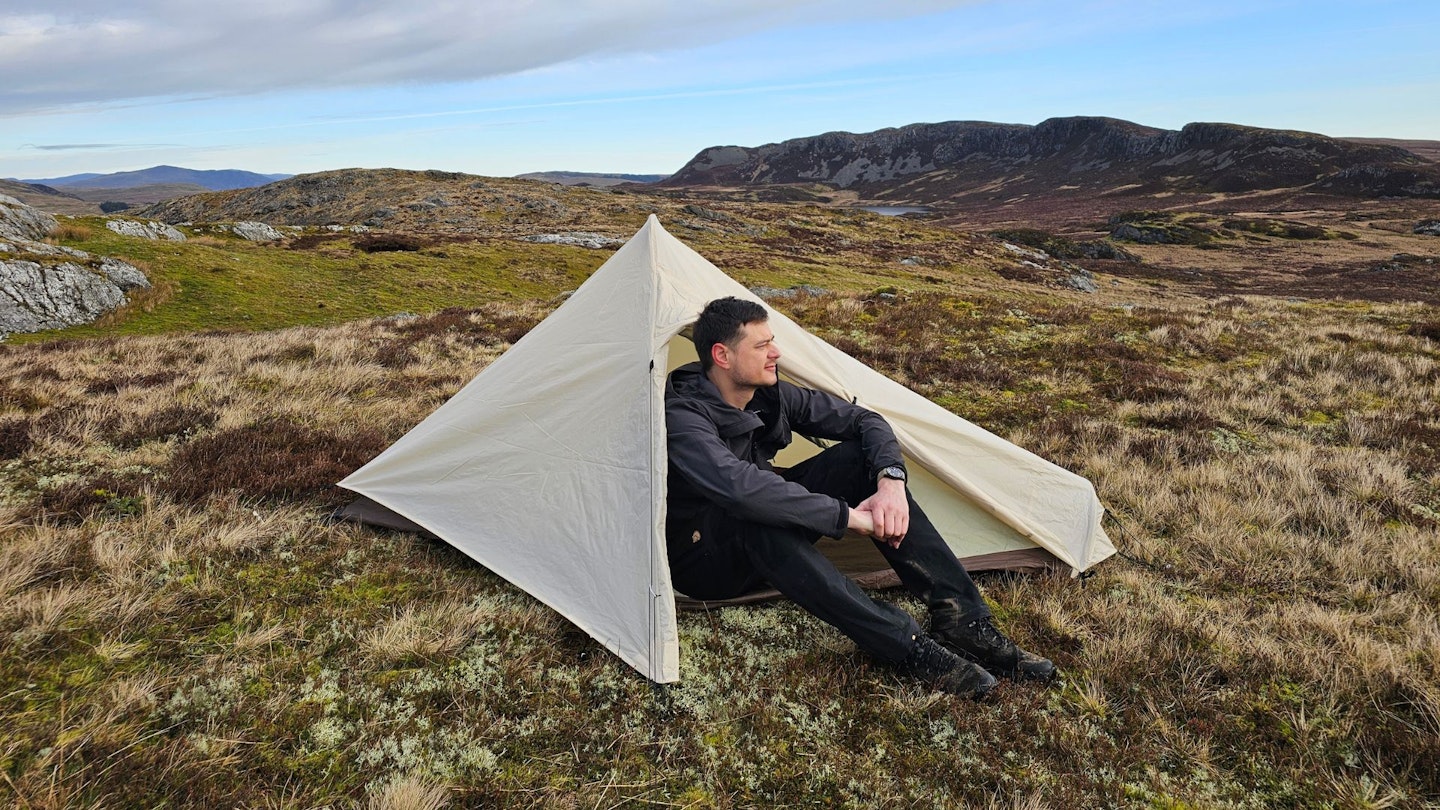Japanese ‘outdoor living’ brand Snow Peak has decades of outdoor heritage, but is perhaps better known for its minimalist, design-orientated camping gear and apparel than its lightweight backpacking equipment. So, the Lago 1 camping tent is a bit of a departure from the norm. It’s certainly eye-catching, with sleek lines and an unusual ivory-coloured flysheet.
Otherwise, it’s a tried and tested double-skinned, single hoop design – though it’s more versatile than most since the central pole is comprised of two straight sections and a U-shaped upper segment. The straight poles can be replaced with trekking poles, effectively turning the Lago 1 into a trekking pole tent. This saves a little weight and adds considerable versatility for backpacking use.
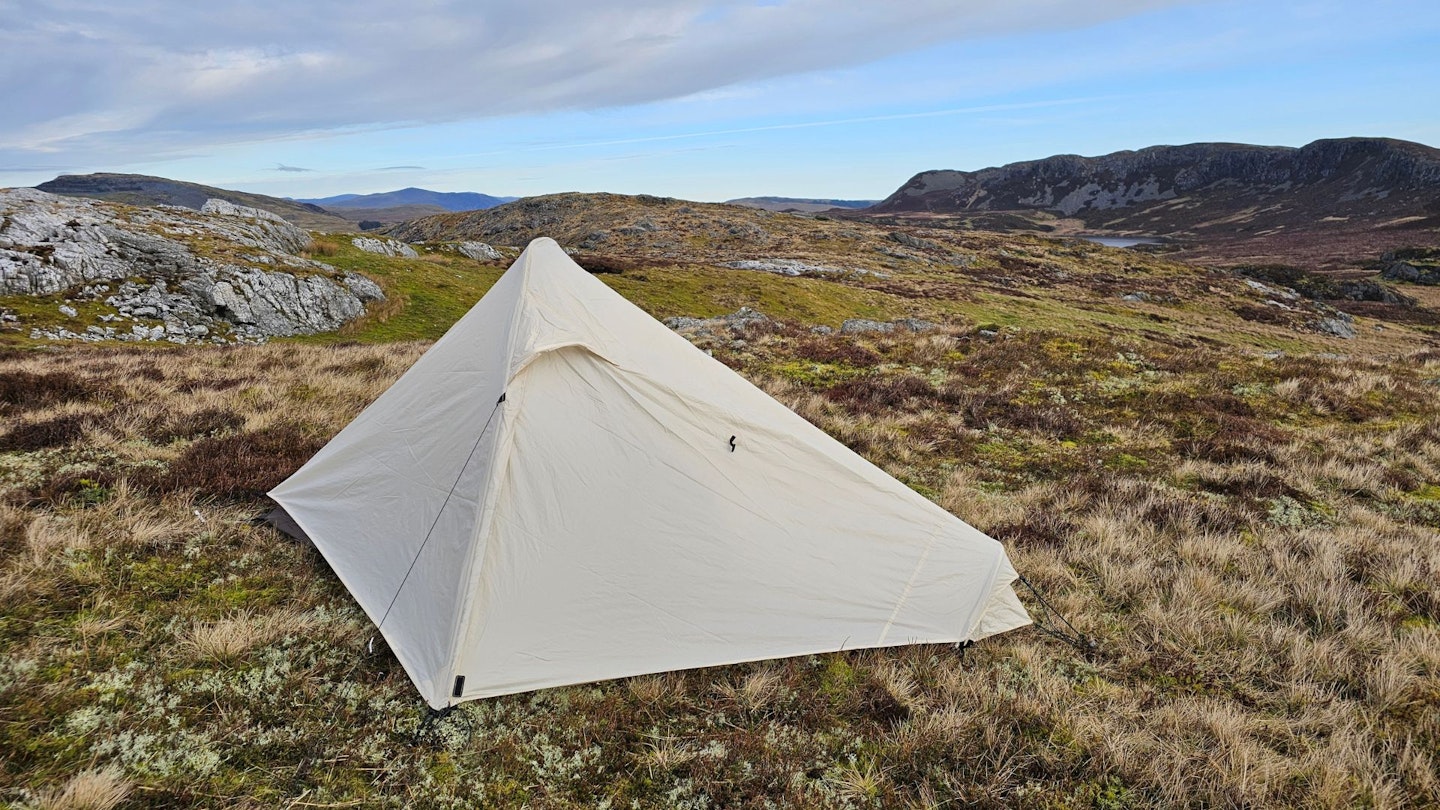 LFTO
LFTOwww.alpinetrek.co.uk
Pros
- Stable and robust design
- Can be pitched using trekking poles
- Excellent headroom
Cons
- Small vestibule
- Pitches inner first
| Type | Single hooped pole (non-freestanding) |
| Weight | 1.4kg |
| Packed size | 37 x 13cm |
| Doors | 1 |
| Vestibules | 1 |
| Inner | 68D Fire-resistant Polyester Taffeta |
| Fly | 75D Fire-resistant Silicone Polyester Taffeta with a PU coating, 1800mm HH |
| Groundsheet | PU coated 75D Polyester Oxford, 1800mm HH |
| Poles | Duralumin A7001 (9.5mm diameter) |
Design and features
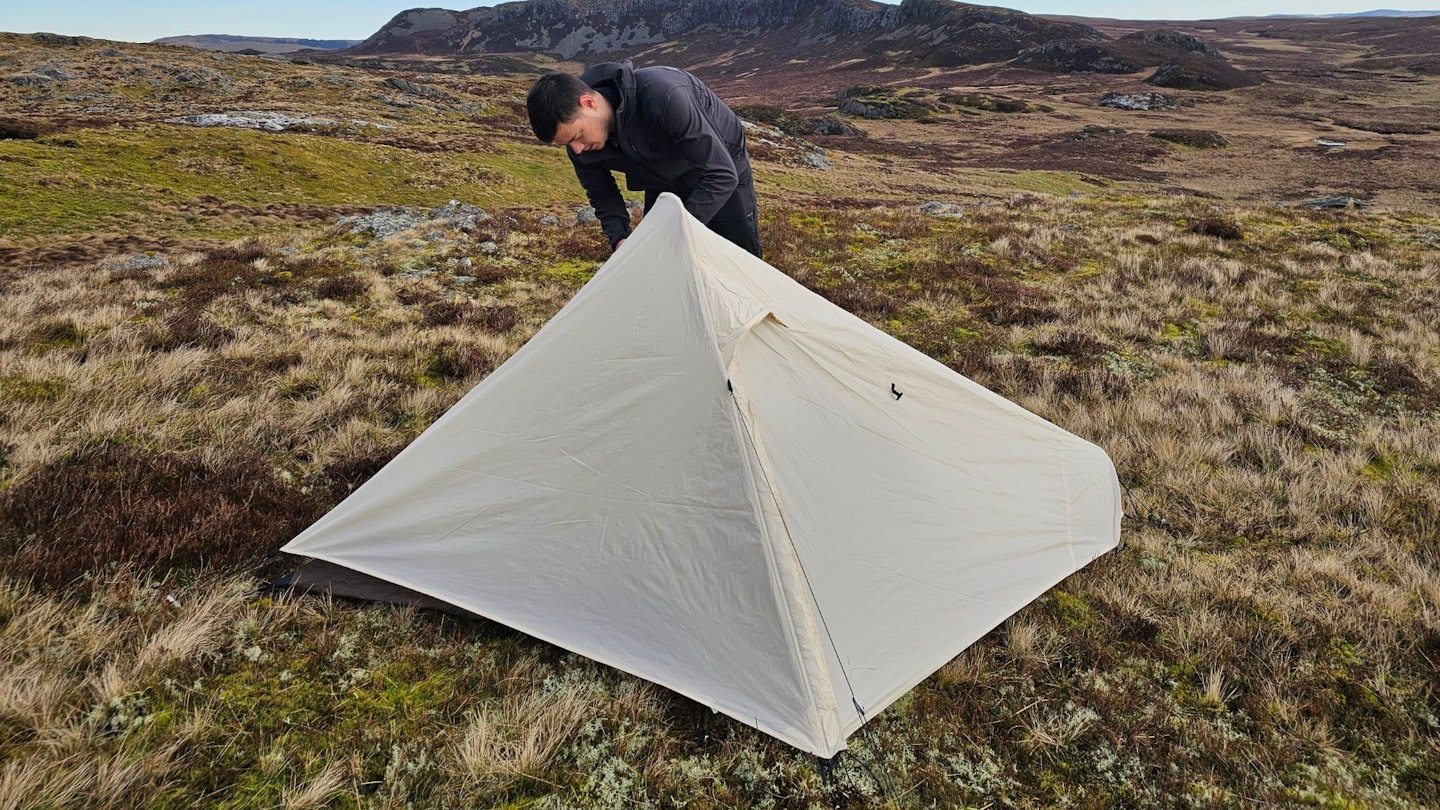
This tent combines striking looks with a familiar design. It uses the same kite-shaped footprint as many other trekking pole tents on the market. It’s a double skinned design with a single central pole plus an additional smaller hoop at the foot end. The main pole is made up of three sections – two straight poles and a third pre-bent, U-shaped upper segment. Intelligently, the two straight poles can be replaced with trekking poles, which then slot into that U-shaped upper section. So, this is effectively a trekking pole tent and a conventional poled tent in one. It’s a versatile design that would be a good weight-saver for backpackers who use poles.
Inside, a full fabric inner is well suited to camping in UK climates, since it adds welcome warmth on chillier nights. A large, zippered mesh vent at the top of the triangular door helps to manage condensation and improve airflow though, ensuring the interior doesn’t get too damp or stuffy. There’s also a small mesh foot vent to circulate air. Both these vents are covered externally by matching hooded vents in the flysheet.
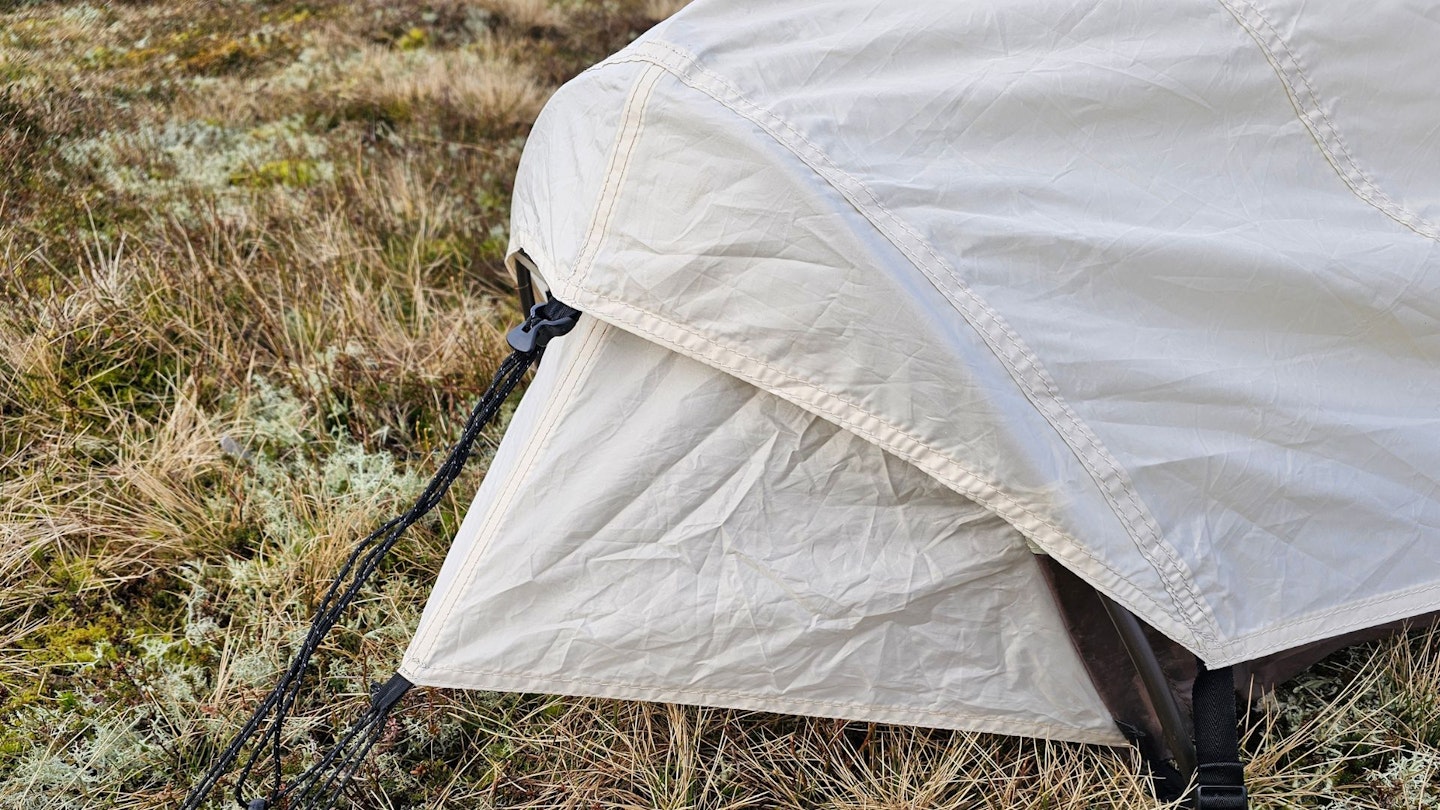
Headroom is good, with one metre of head height at the apex, though the tent does slope away sharply at either end. Fortunately, a small, hooped pole at the foot keeps the ceiling away from your feet, creating more interior space and stopping your sleeping bag from touching the walls of the tent. It’s actually pretty liveable inside, with an internal length measuring 225cm (just over 2m of which is actually useable, due to the sloping design) and 115cm at the widest point, though this tapers to 40cm at the foot. On test it didn’t feel too cramped for a six-footer though.
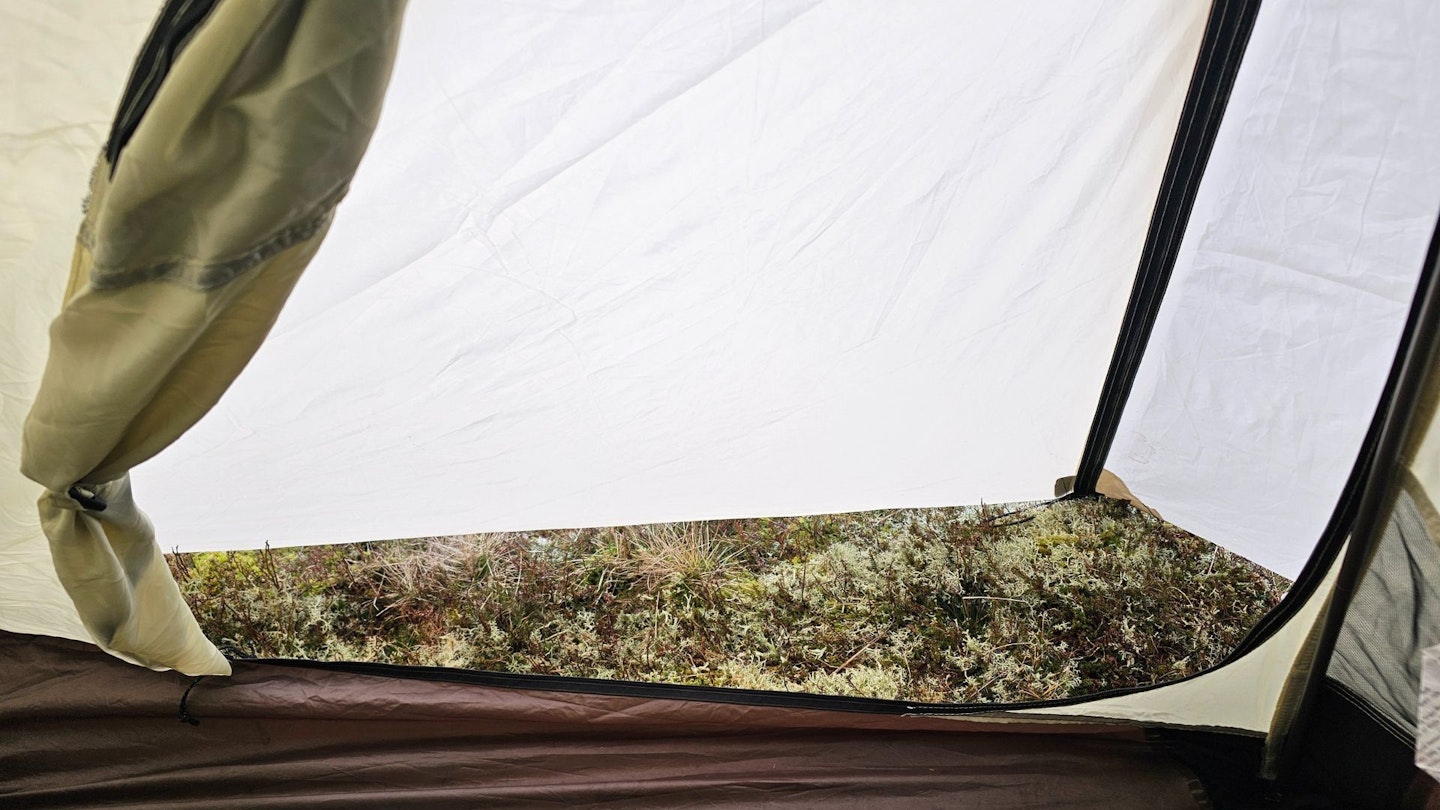
An overhead hanging tab and a single small storage pocket offer some space for tent essentials. That’s just as well, since space in the single porch or vestibule is limited. At a push, there’s just enough room to stash a muddy pair of boots and a pack, but nothing else. This also means that with the flysheet door open, the inner is partially exposed to the elements, which means if you have to get out in the rain, your stuff is going to get wet.
Performance
The tent pitches inner first – in fact, the poles need to be set up inside the inner tent – but it’s easy to erect and feels extremely stable. The angled profile sheds the wind well and provided it’s properly pegged out at each end, the Lago 1 makes a rock solid shelter.
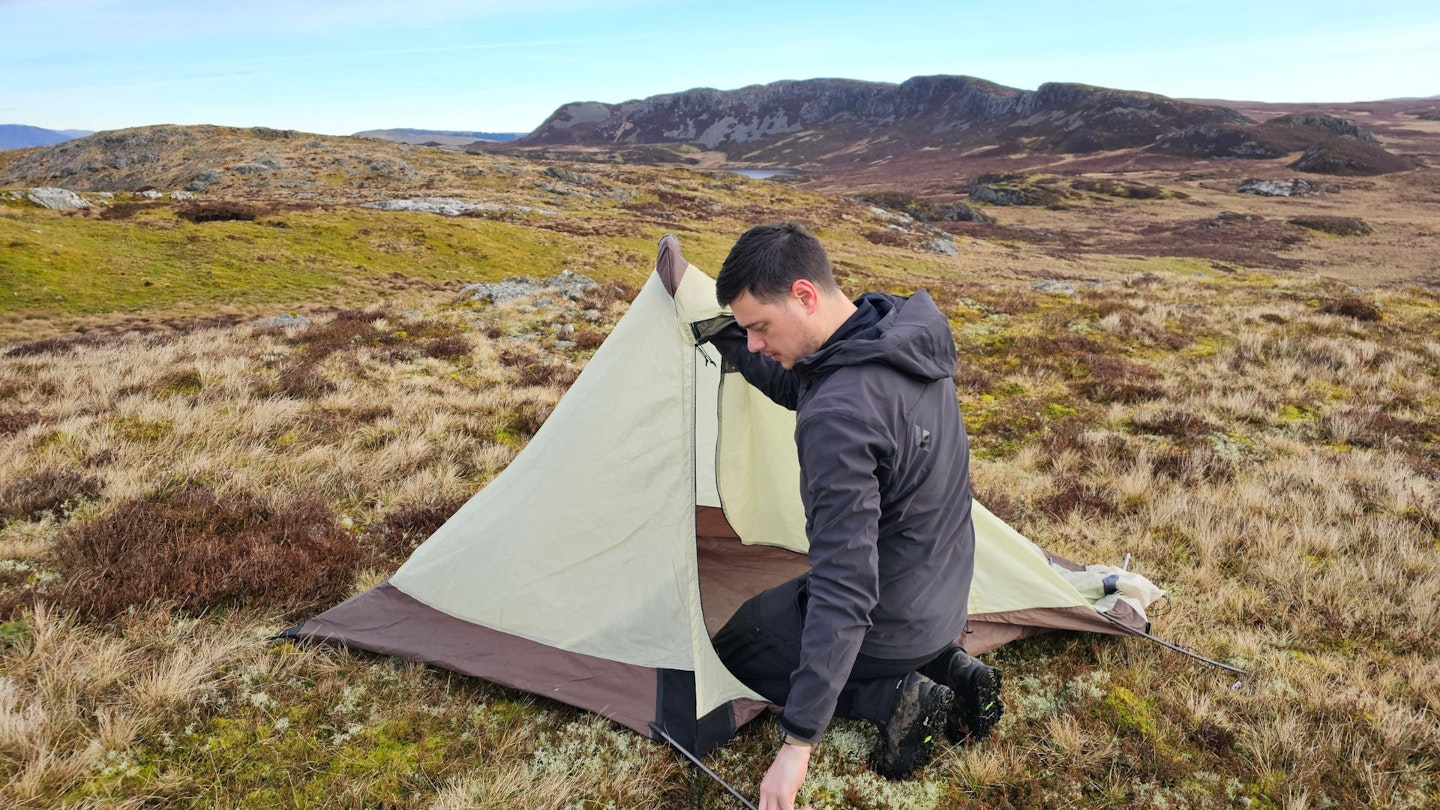
Fabrics are made from high-denier polyester, which is reassuringly robust. This doesn’t have the tear strength or UV resistance of silicone nylon, but on the flipside, it doesn’t sag when it gets wet either, which is critical for a non-freestanding tent of this design. We’d still expect this to be a durable and long-lasting shelter. For extra peace of mind when pitching on rough or uneven ground, you can also pair it with the Lago Pro Air groundsheet footprint (sold separately), though this costs a hefty £78 extra and weighs another 150g.
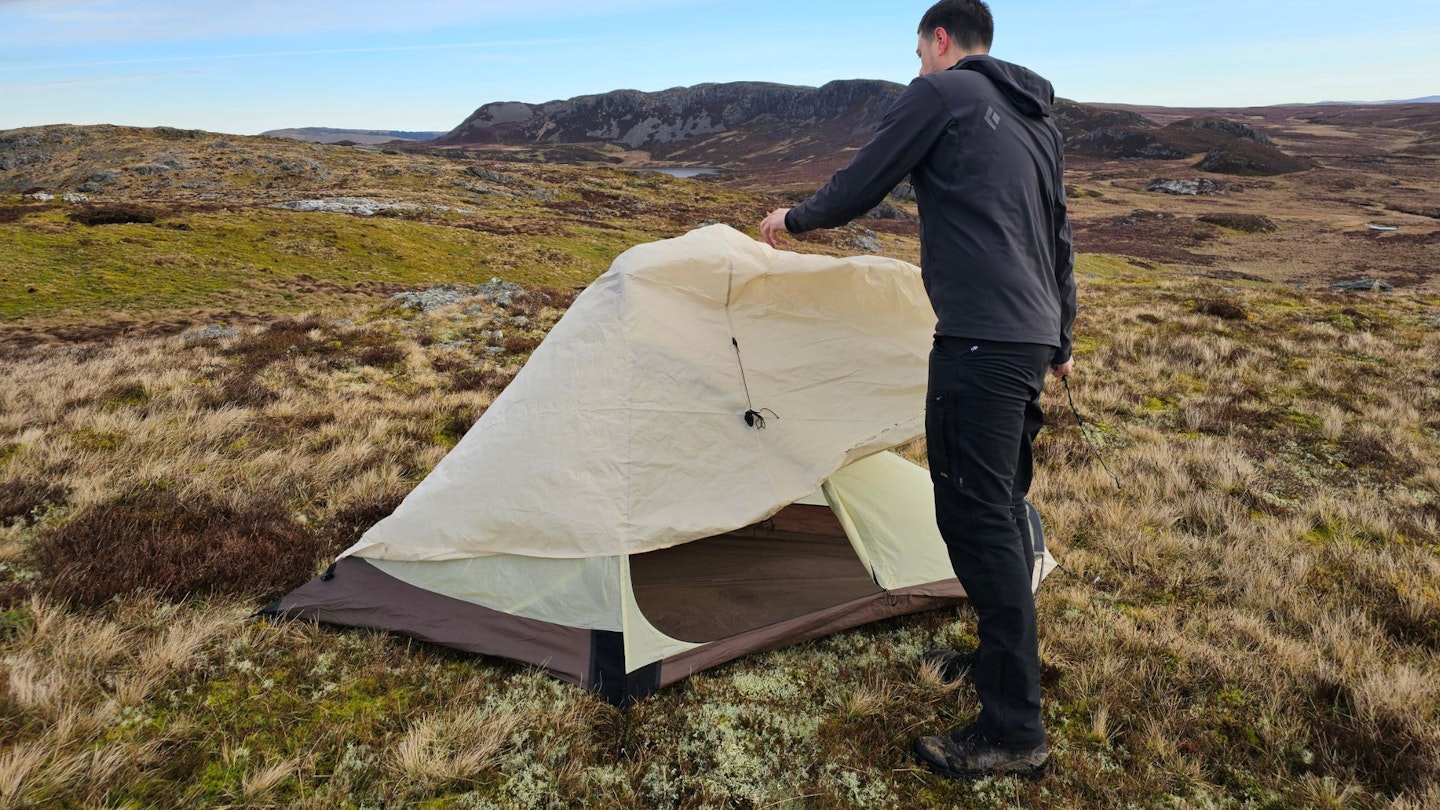
From a performance perspective, the ivory colourway is great for camping in hot, sunny, weather, as it keeps the tent noticeably cooler than dark-coloured fabrics. But from a practical point of view, it’s less well-suited to stealthy wild camps or muddy campsites. We did our best to keep our loan test sample clean, but it soon started to look a little grubby. On the other hand, it looks awesome in Instagram photos, if that’s your thing.
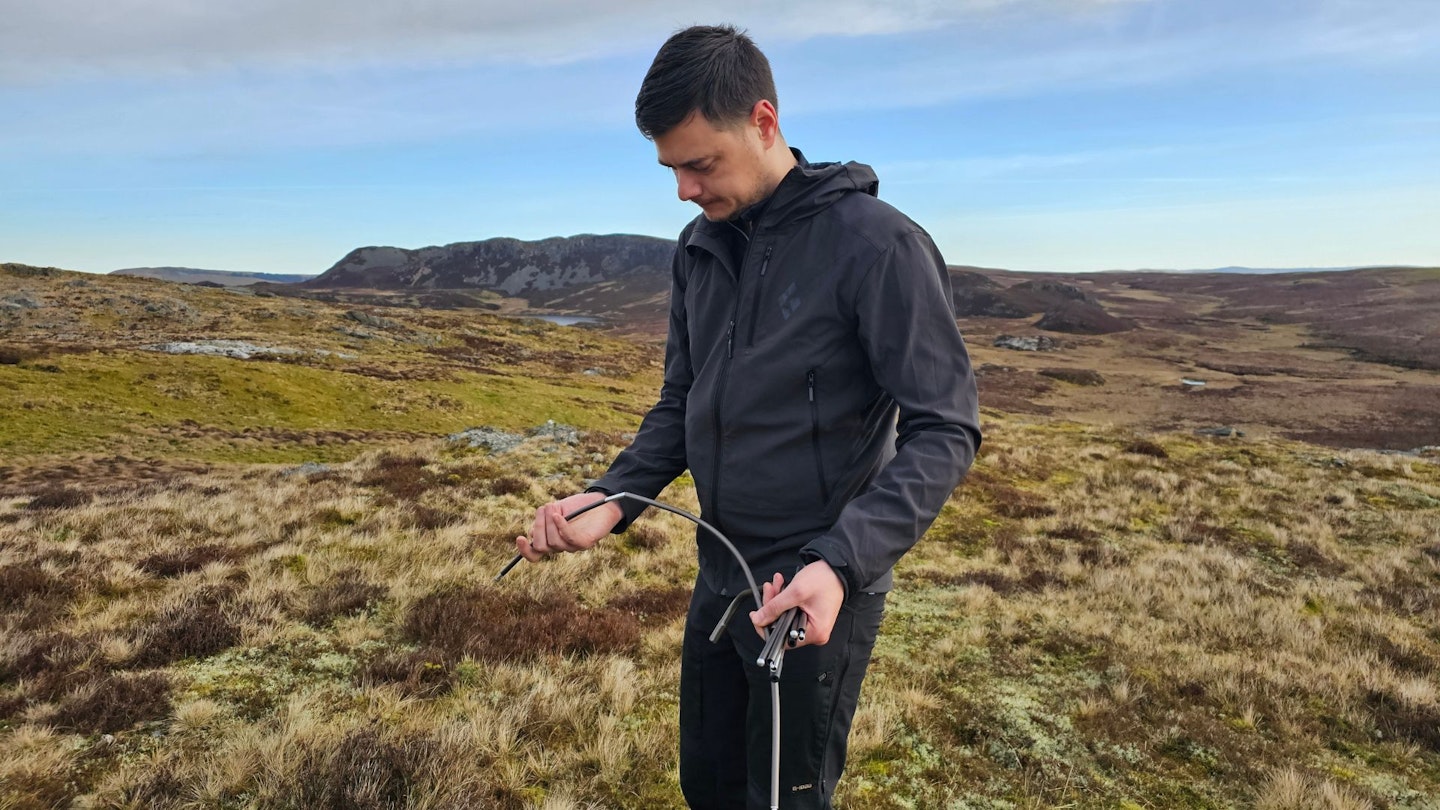
Build quality is good, though the components are perhaps less sophisticated than with some other rivals. For example, pegging points are made from elastic bungee cord and the poles are inserted into webbing tabs with simple metal eyelets, rather than employing the anodised aluminium components or locking tensioners of other tents.
Sustainability
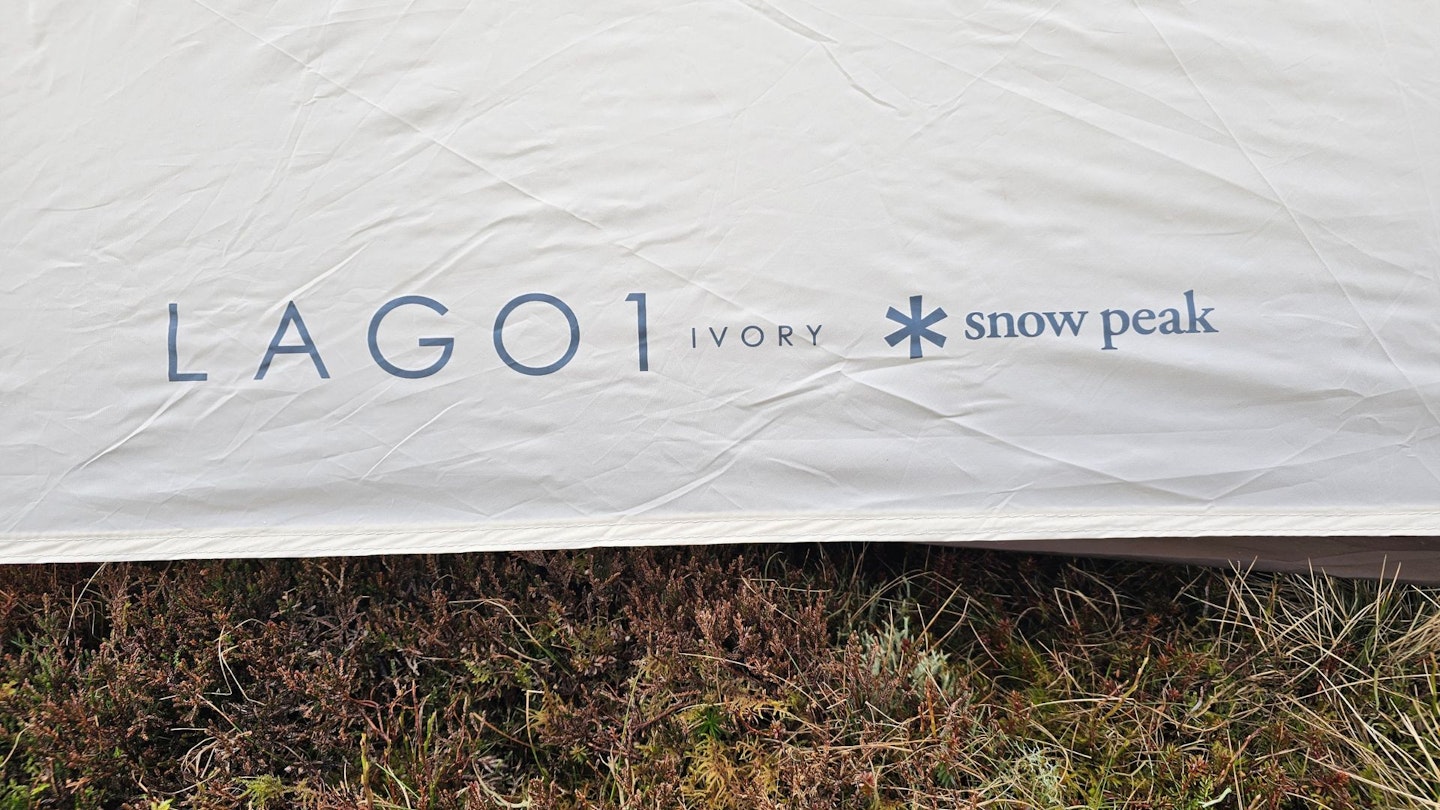
As a brand, Snow Peak’s overall sustainability report seems to be mixed. Indeed, the goodonyou directory’s overall assessment is ‘not good enough’ (1/5 stars). This poor rating mostly relates to the brand’s vague supply chain transparency. It does publish a Code of Conduct, a Human Rights policy and an anti-corruption policy, but it isn’t clear whether this is implemented throughout the supply chain.
Centrally, the brand performs a little better. All Snow Peak offices, business units and directly managed campsites have transitioned to clean energy sources with zero CO2 emissions. Snow Peak does also use recycled materials in its products, though this isn’t the case with the Lago 1 tent.
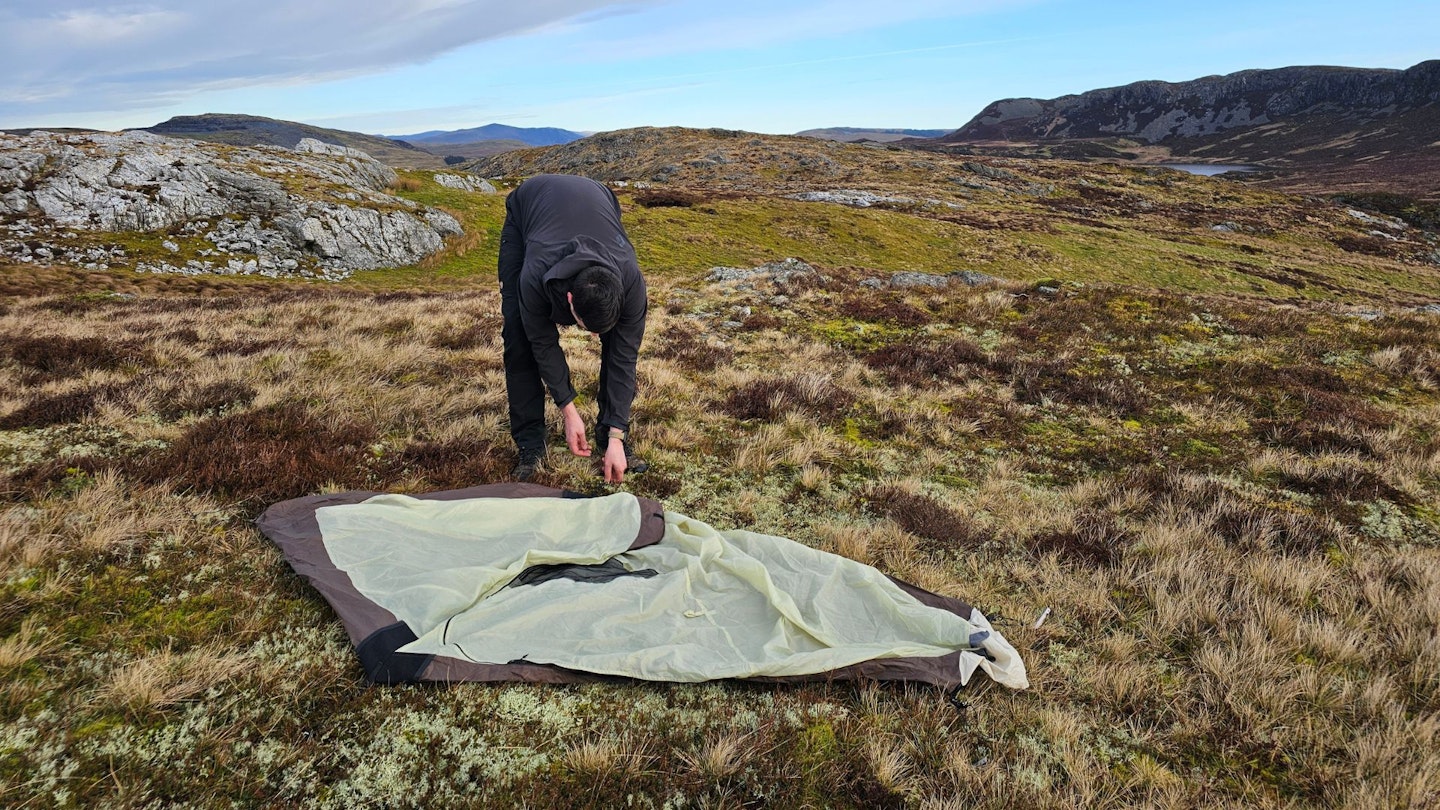
The brand’s main sustainability focus is product longevity. It offers a limited lifetime warranty on all its products, claiming that Snow Peak products are designed and built to last a lifetime. They submit all of their outdoor hard goods to rigorous engineering and testing to ensure long-lasting durability in even the most challenging outdoor conditions. If a product requires service, Snow Peak also promises to repair or exchange it.
Price and competition
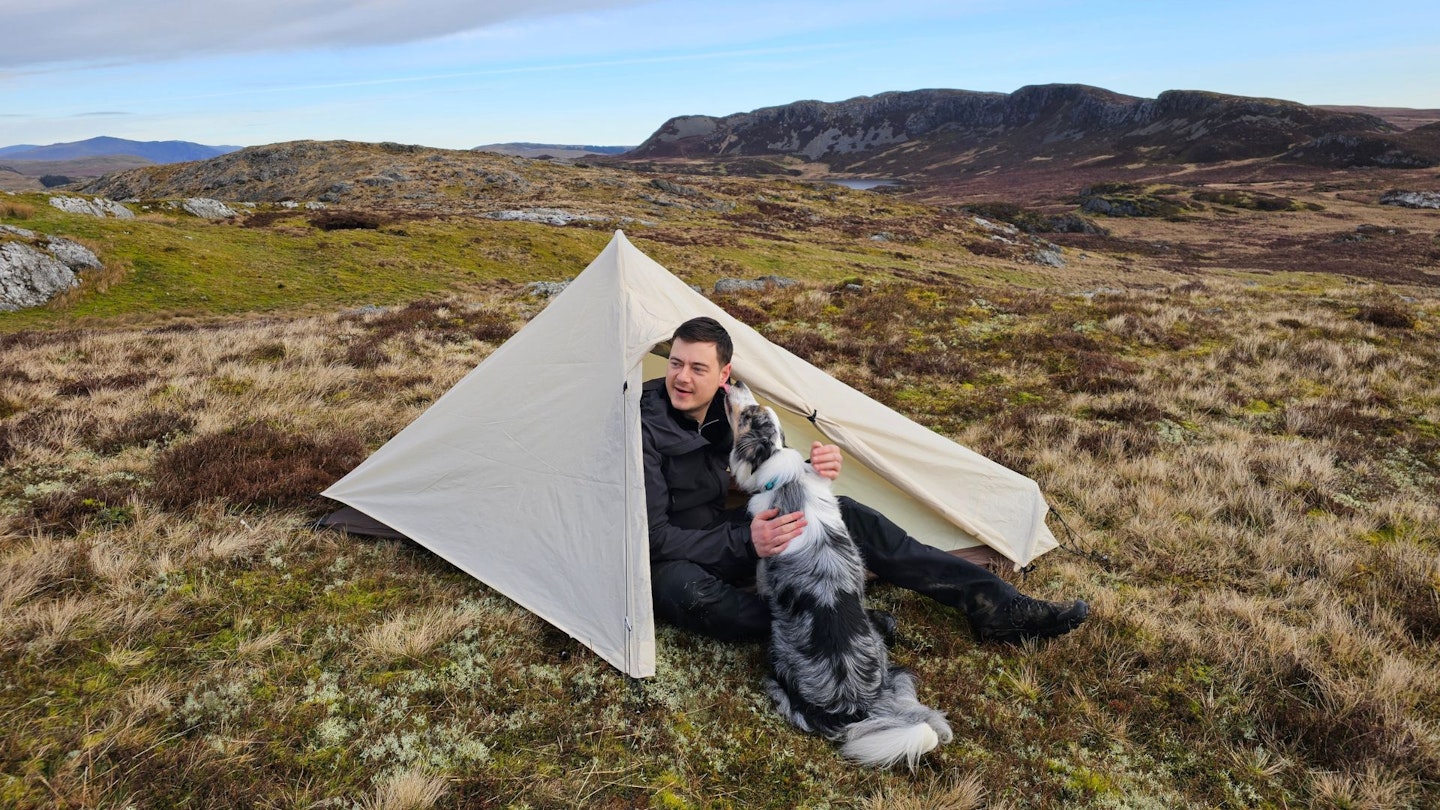
With an RRP of £300, this is a mid-range tent. It’s £50 more expensive than a previous ‘Gear of the Year’ winner of ours, the Wild Country Helm Compact 1, but uses similar fabrics (albeit with lower waterproof ratings). On the other hand, it’s 600g lighter than the Helm Compact 1.
On test it proved well suited to typical three-season British weather, standing up well to wind and rain. But the small porch area means bringing most of your kit into the tent with you, which limits the liveable space.
Although it’s hard to argue that it’s brilliant value for money, since you’re probably paying a premium for the Snow Peak brand name, the Lago 1 is still significantly cheaper than many of the other premium solo tents on the market.
Verdict
A versatile solo tent that works as a conventional poled design or as a trekking pole tent, the Lago 1 will attract design-conscious backpackers. Weight and packed size are both competitive and the price isn’t ridiculous either. It’s also stable, durable and reasonably roomy. Its only real drawback is that small vestibule.
How we tested
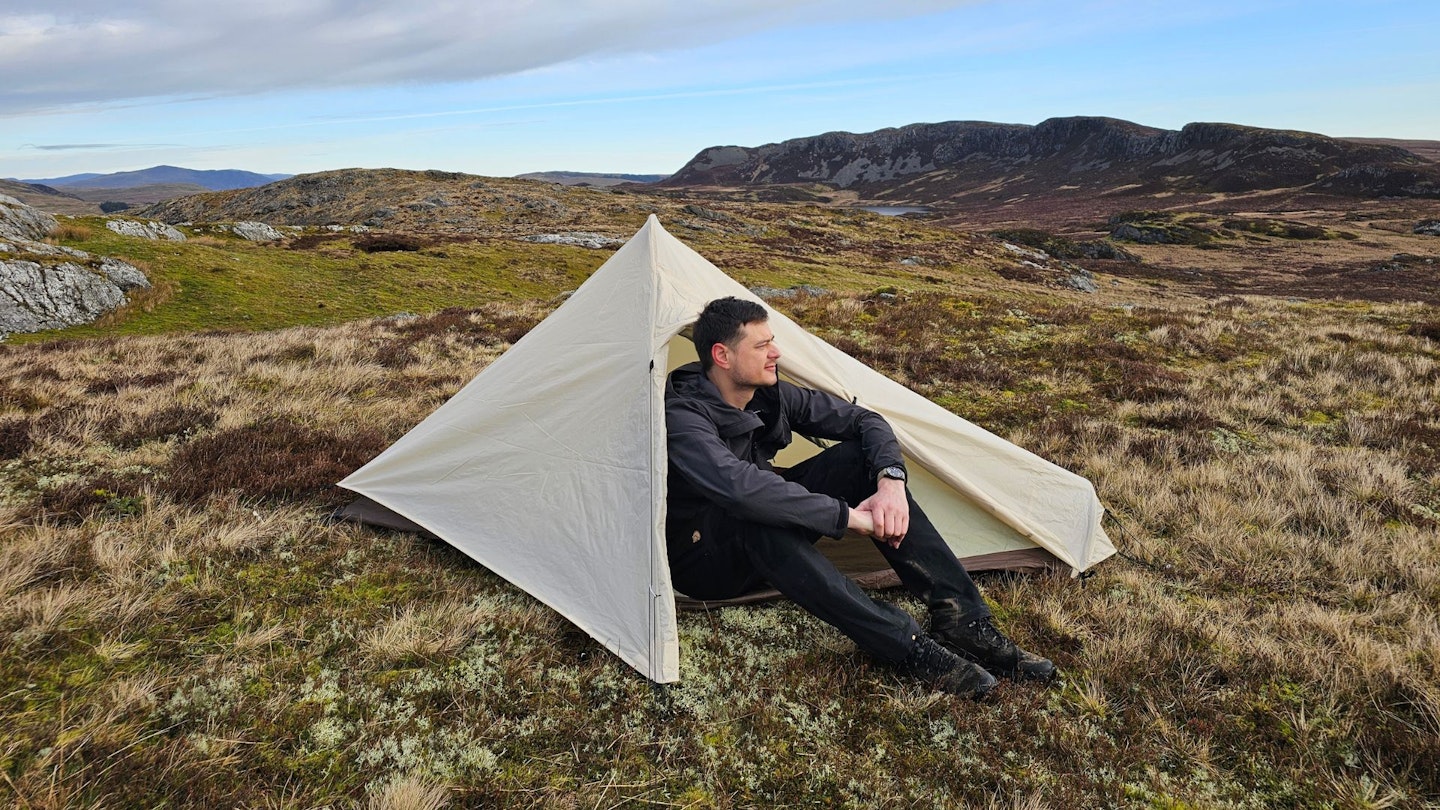
We borrowed a test sample of the Snow Peak Lago 1 in Ivory from the brand for several weeks, mainly wild camping in the hills and mountains of Eryri (Snowdonia). This included backpacking stretches of several classic long-distance trails such as the Snowdonia Slate Trail (Llwybr Llechi Eryri), the Cambrian Way (Taith Cambria) and the Snowdonia Way (High Route).
As well as individual product testing, this tent was pitched alongside the 5 other leading solo backpacking tents selected for our 2024 group test, enabling direct comparison of overall dimensions, space, weight, packed size, ease of pitching and other key features.
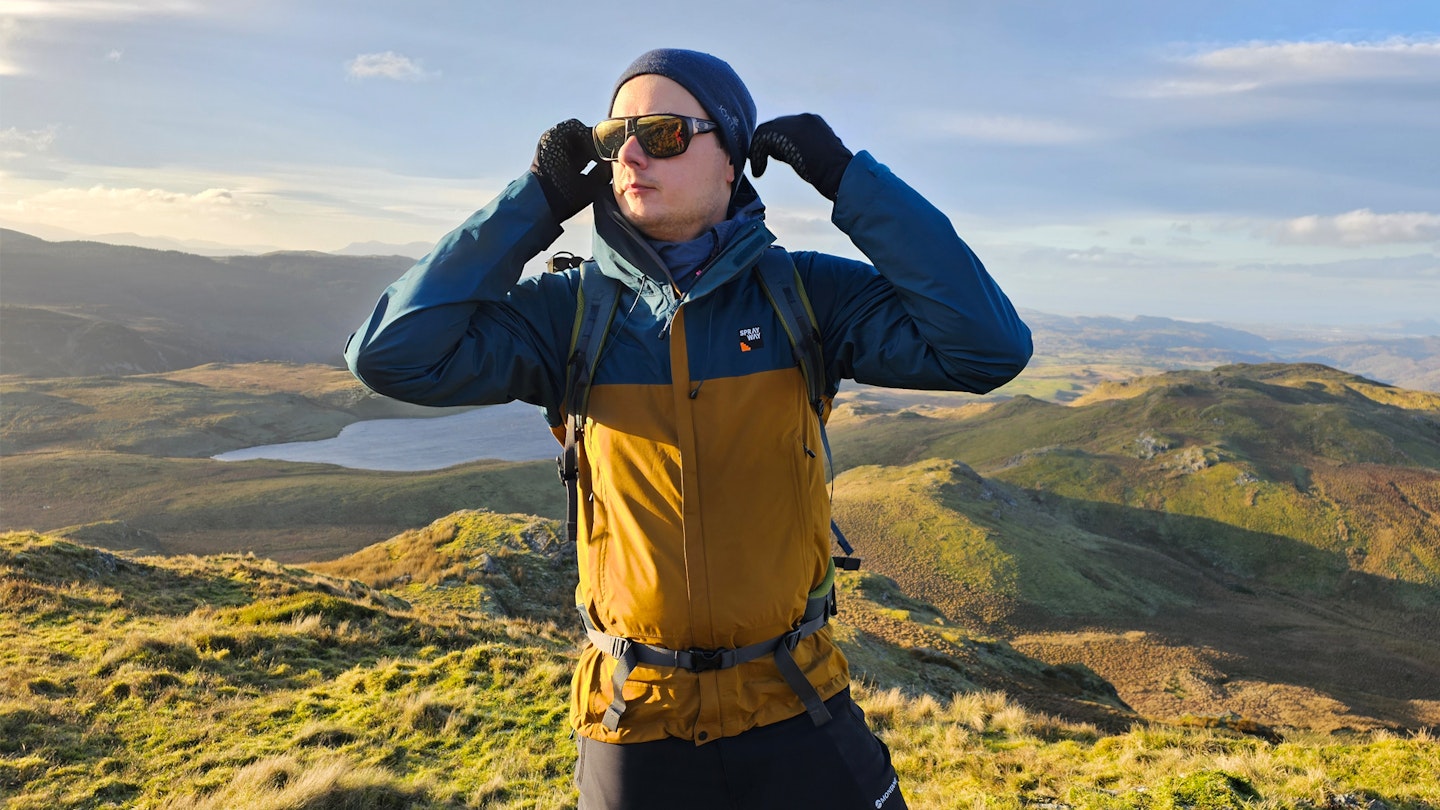
The reviewer was Matt Jones, one of Live For The Outdoors' and Trail Magazine’s regular gear testers. Matt is an experienced wild camper, backpacker and long-distance walker. He’s completed numerous trails end to end in the UK, including the Pennine Way, the Cambrian Way, the West Highland Way and the Great Glen Way. He’s also hiked extensively in the US, Spain, Scandinavia and New Zealand.
